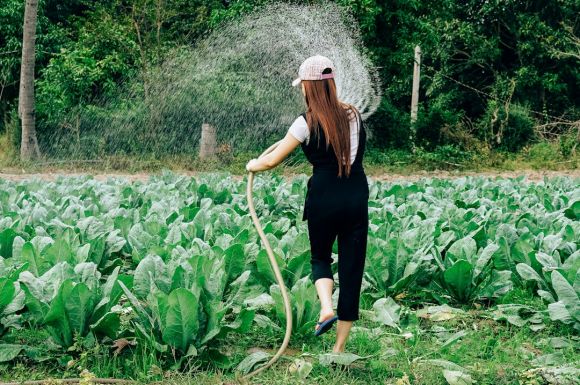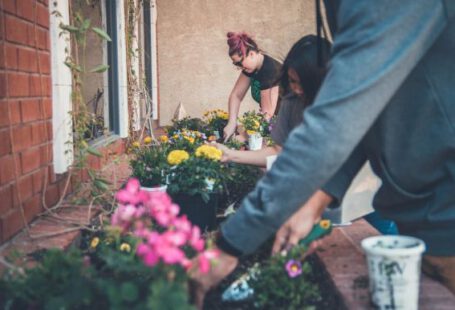Water is essential for the health and growth of plants. It provides vital nutrients and helps transport these nutrients to different parts of the plant. However, just like anything else, too much of a good thing can be harmful. In the case of watering your garden, over-watering can have detrimental effects on your plants. In this article, we will explore the potential dangers of over-watering and how to avoid them.
The Risks of Over-watering
1. Root Rot
One of the most common problems associated with over-watering is root rot. When the soil is constantly saturated with water, it deprives the roots of essential oxygen. This lack of oxygen can lead to the growth of anaerobic bacteria, which cause the roots to decay. As a result, the plant’s ability to absorb nutrients and water is compromised, eventually leading to wilting and death.
2. Nutrient Leaching
Over-watering can also lead to nutrient leaching. When excessive water is applied, it washes away the essential nutrients present in the soil. These nutrients are carried away with the excess water, leaving the plants deprived of the nourishment they need. Consequently, the plants may suffer from nutrient deficiencies, which can stunt their growth and make them more susceptible to diseases and pests.
3. Weakened Plant Health
Over-watering can weaken the overall health of your plants. When plants are constantly exposed to excessive moisture, their root systems become shallow and weak. This makes them more vulnerable to environmental stresses, such as extreme temperatures and strong winds. Additionally, over-watering creates the perfect breeding ground for fungal diseases, which can further compromise the health of your garden.
Preventing Over-watering
1. Understand Your Plants’ Watering Needs
Different plants have different watering requirements. Some plants, like succulents, prefer drier soil, while others, like ferns, thrive in moist conditions. It is important to research and understand the specific watering needs of the plants in your garden. This will help you determine the appropriate watering schedule and avoid over-watering.
2. Use Proper Watering Techniques
When watering your garden, it is important to use proper techniques to ensure that water reaches the roots without saturating the soil. Avoid shallow watering, as this encourages shallow root growth. Instead, water deeply and less frequently, allowing the water to penetrate the soil and reach the root zone. This will promote healthy root development and reduce the risk of over-watering.
3. Monitor Soil Moisture
Regularly monitoring the moisture levels in your soil can help you determine when to water and when to hold back. Use a moisture meter or simply dig a small hole in the soil to check its moisture content. If the soil feels moist a few inches below the surface, it is likely that your plants do not need to be watered yet. This method prevents over-watering by allowing you to make informed decisions based on the actual needs of your plants.
In conclusion,
While water is essential for the health of your garden, over-watering can be detrimental to your plants. It can lead to root rot, nutrient leaching, and weakened plant health. To prevent over-watering, it is important to understand your plants’ watering needs, use proper watering techniques, and monitor soil moisture regularly. By following these guidelines, you can ensure that your garden thrives without falling victim to the dangers of over-watering.





